|
Reburial / Begrafenis - Mesen - 25/02/2013
Reburial of NZ Soldier (Messines)
Monday, 25 February 2013 9:30am
Messines Ridge British Cemetery, Nieuwkerkestraat, 8957 Mesen
The remains of an unknown soldier from the First World War were discovered during excavations in April 2012 in Mesen, West Flanders. Based on objects recovered with the remains including unit insignia as well as the location of the find, the remains were accepted in August 2012 as that of an unidentified New Zealand soldier.
A reburial service for the soldier was held on the morning of Monday 25 February 2013 at the Messines Ridge British Cemetery in Mesen. The service commenced at 9:30am. New Zealand will have a high-level delegation at the reburial led by New Zealand’s Chief of Defence Force, Lt Gen R. R. (Rhys) Jones and New Zealand's Ambassador to Belgium, Paula Wilson. The soldier was be reburied next to the grave of another unidentified New Zealand soldier whose remains were discovered in 2011 and for whom a similar reburial ceremony was held in February last year.
The reburial service was open to members of the public. Individuals wishing to attend were asked to advise the New Zealand Embassy of their intention in order to assist preparations.
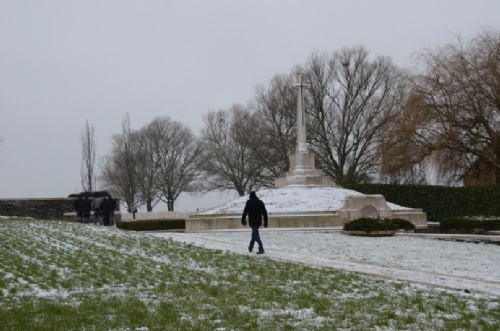
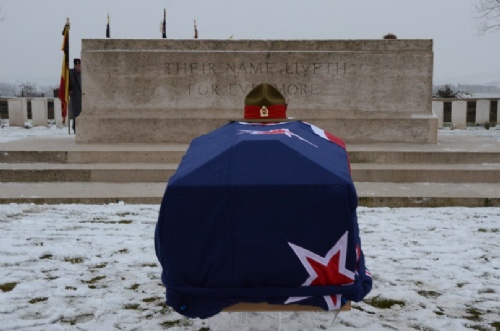
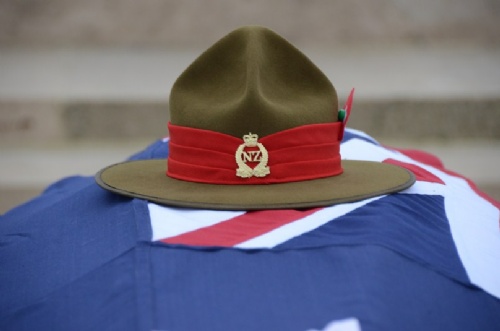
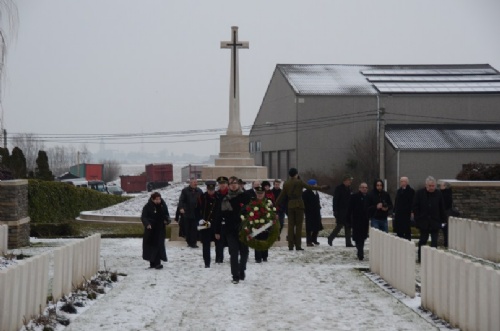
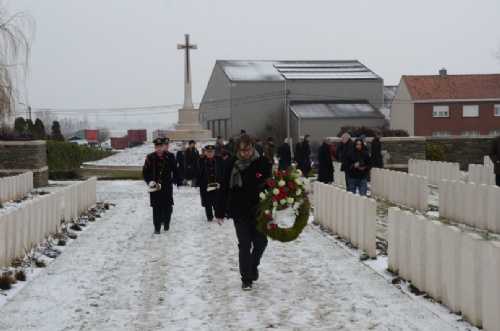
Mike Beale, Lieutenant Colonel, Military Advisor, New Zealand Defence Staff, London
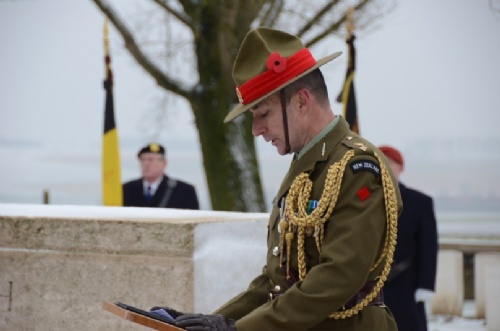
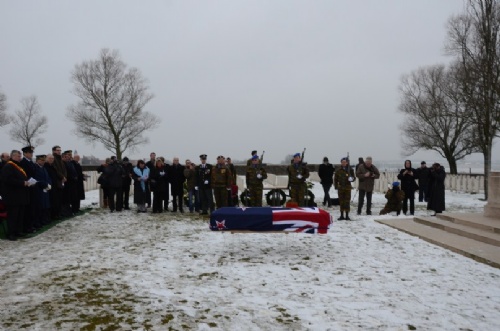
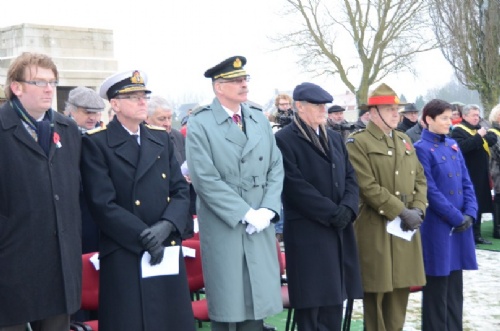
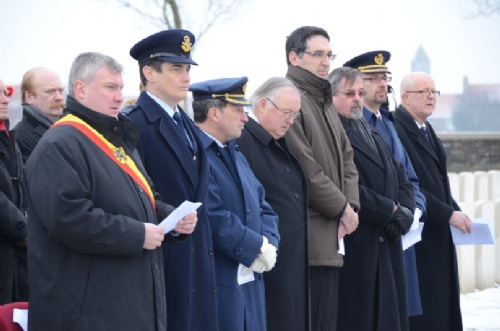
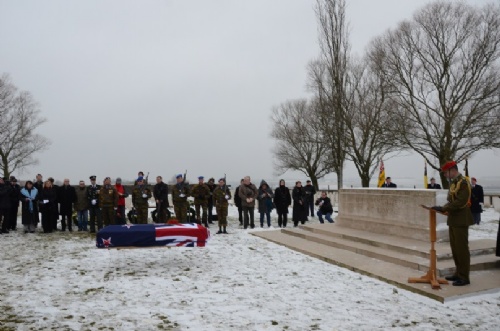
Rev. Brian Llewellyn
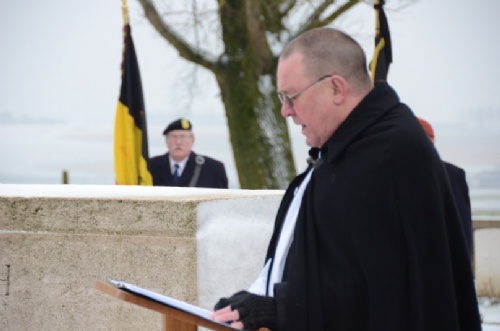
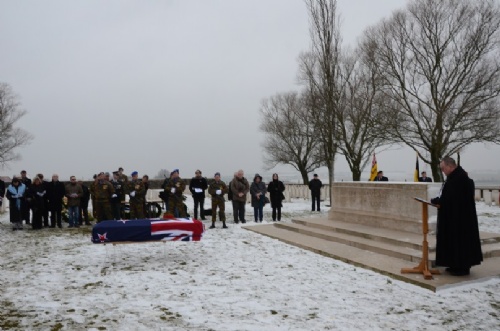
Sandy Evrard, Mayor of Mesen
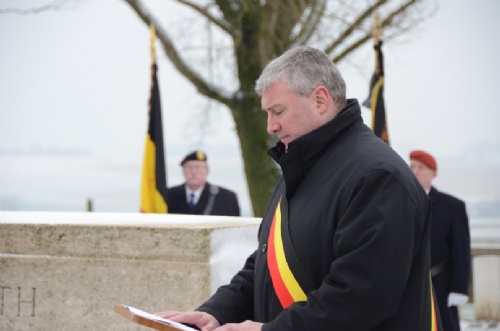
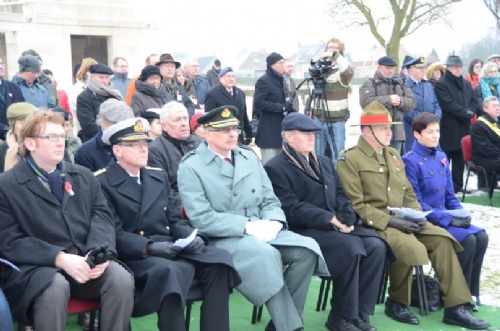
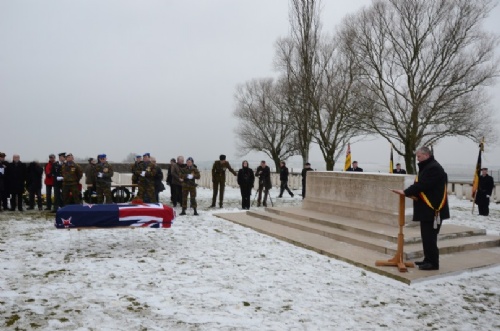
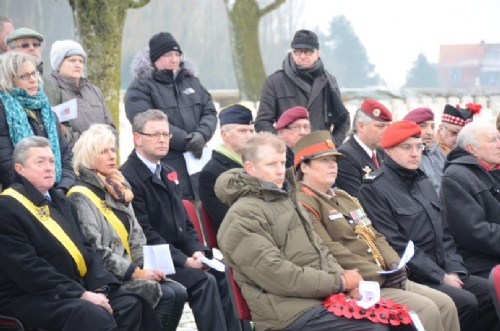
Lieutenant General Rhys Jones, New Zealand Chief of Defence Force
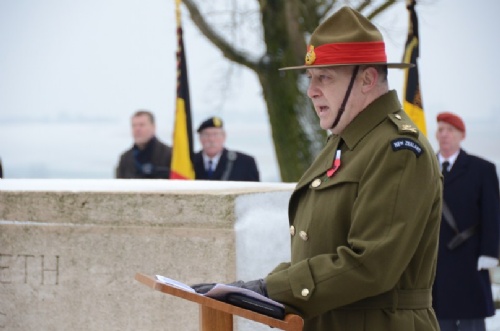
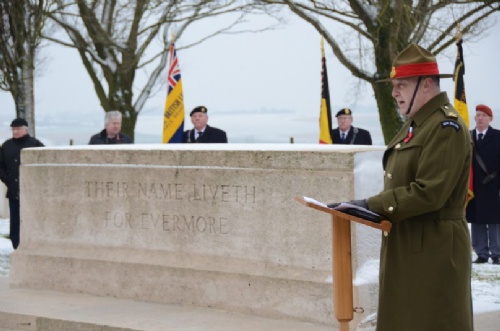
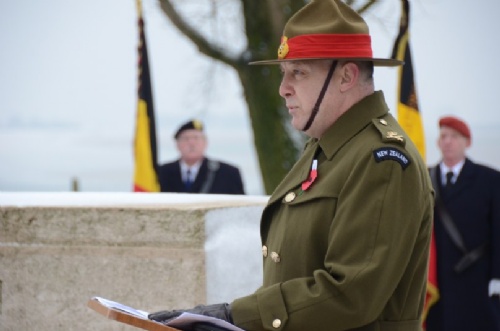
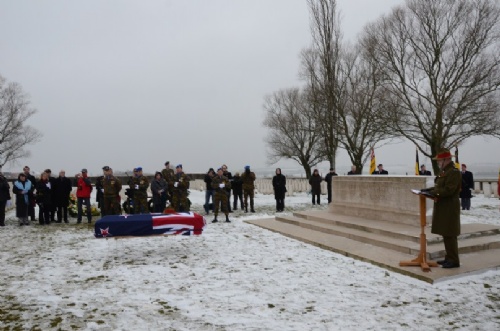
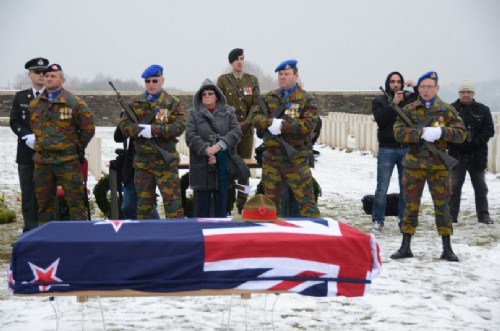
Dr. Andrew Macdonald, historian
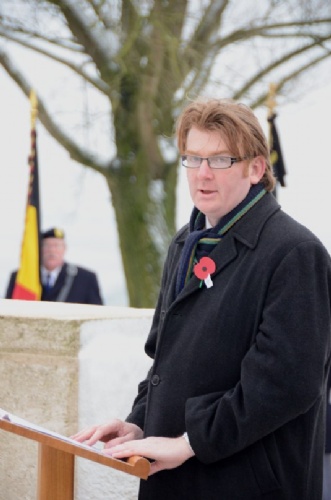
Please find below his speech:
"Good morning, ladies, gentlemen, distinguished guests
We are gathered here today to remember just one of the many soldiers who fell in battle on the Messines Ridge in June 1917.
In this case, we know he was a New Zealand soldier from artefacts found with his remains, not far from where we now stand.
What we don’t know are his name, specifically where he came from, what he was thinking on the morning he died, or what exactly happened to him.
The New Zealand Division stormed this part of Messines Ridge on 7 June 1917 in what was a carefully planned and rehearsed attack, involving three of its four infantry brigades.
Its commander, Major-General Sir Andrew Russell, had spent weeks planning his division’s attack . He spent hours on Hill 63 (pointing to it) studying the German positions that once stood here.
After careful contemplation he came up with a structured attack to storm the ridge line quickly with his leading attack battalions, using those following to isolate and capture Messines, and others still moving on to more distant objectives beyond the village.
It was an essay in objective thinking, from the way in which he allocated his battalions to battle and their various objectives, to the way in which overcame localised tactical issues such as an exposed left flank and German strong points and machine gun posts.
It also showed that the division, its officers and soldiers, had under Russell’s guidance become a formidable fighting and learning machine after Gallipoli and also after the Somme.
Every unit was schooled and skilled in the tactics they would use. History records that they did their job on the morning of 7 June. It was a morning and day rent with tremendous boom of multiple underground mines detonating, a terrific artillery bombardment, machine-gun and rifle fire, roaring aircraft engines, and, of course, the shouts and cries of soldiers in battle.
It was also a day of heavy casualties. The Commonwealth War Graves Commission holds the names of 530 New Zealand soldiers who died in Belgium on 7 June 1917.
The area where we now stand was traversed by several battalions of 2nd New Zealand Infantry Brigade as they pressed towards Messines village. To this end, the soldier we are remembering today most likely belonged to either the Canterbury or Otago Regiments.
But, there exists a possibility that he belonged to one of several divisional units operating in the area, or from another New Zealand battalion that was involved in fighting later in the day.
He might have been killed by machine gun fire in the darkness of the before-dawn advance, as he pressed forward, laden with all the equipment that infantry carry into battle. He might have been wounded in or around Messines and unsuccessfully tried to make his way back to safety. He might also have been killed by shellfire later in the day.
We will never know.
But it is nonetheless important to remember this anonymous soldier’s sacrifice.
You see, he was one of them, and today, however mutely, he is among us. He is very much not forgotten."
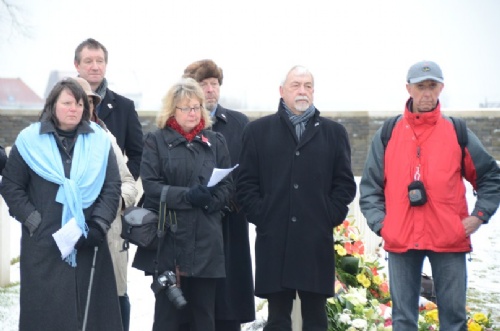
Poem 'The Ridge' by Malcolm Ross by Hannah Stilborn and Megan Crow, students on AFS Exchange to Belgium
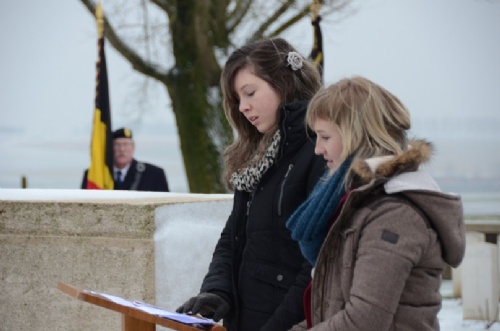
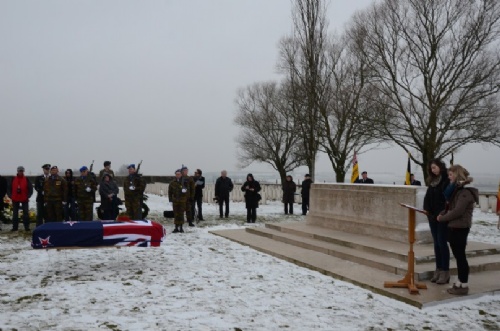
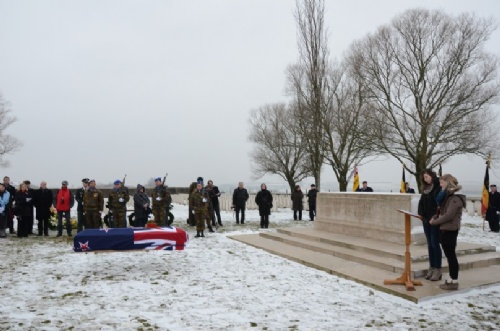
The laying of the wreaths.
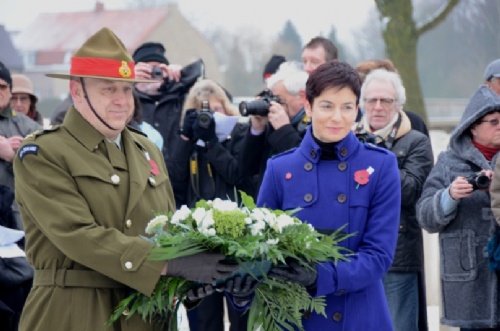
Lieutenant General Rhys Jones and New Zealand's Ambassador to Belgium, Paula Wilson.
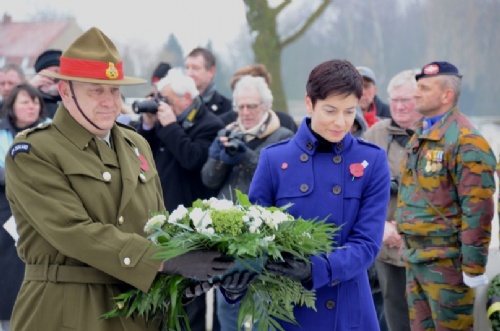
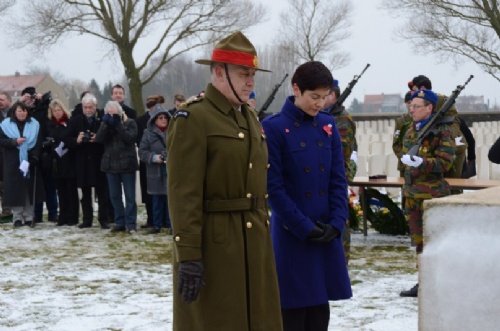
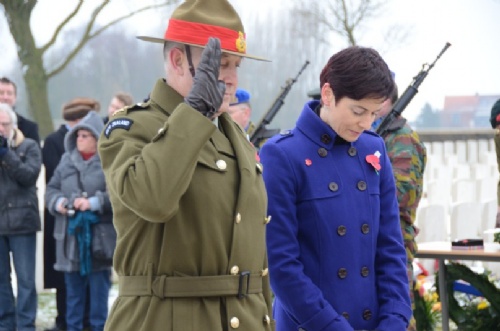
Ambassador Duncan Lewis from Australia.
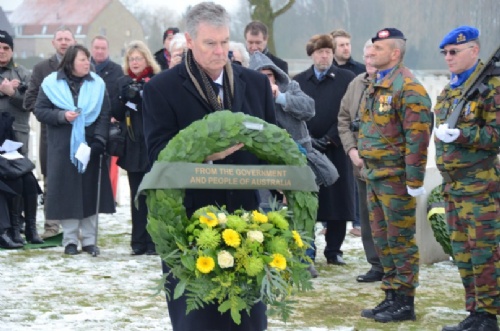
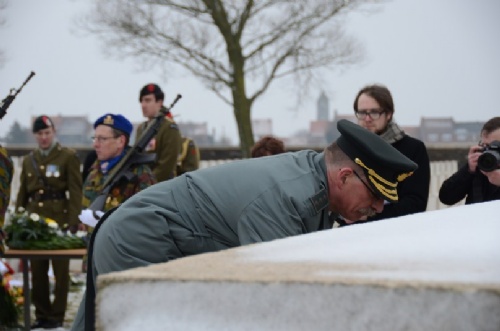
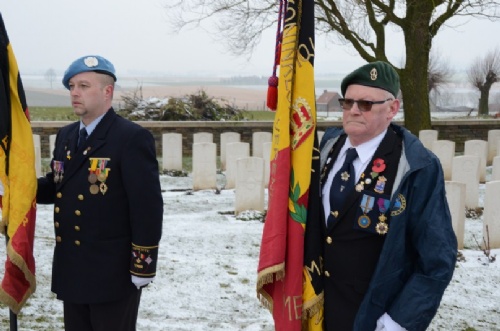
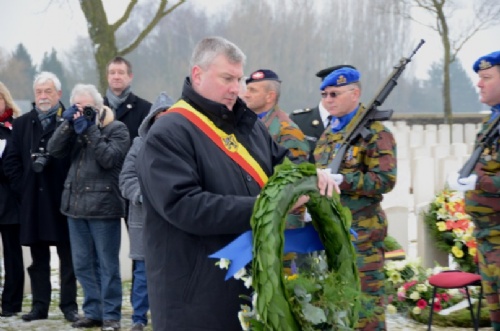
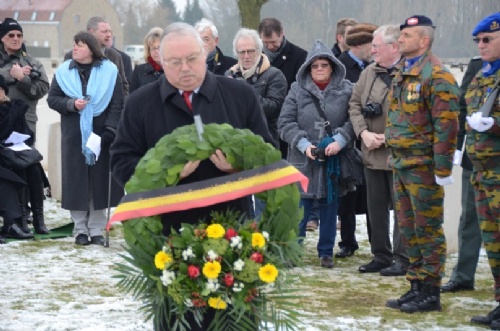

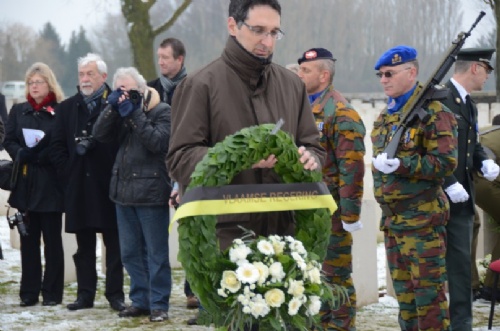
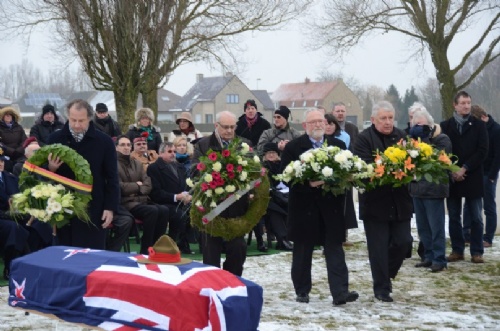
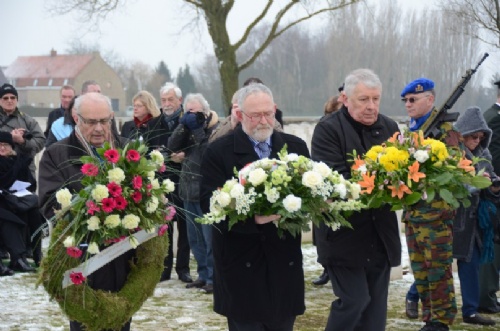
The mayors of Heuvelland, Zonnebeke, Ieper and Comines-Warneton.
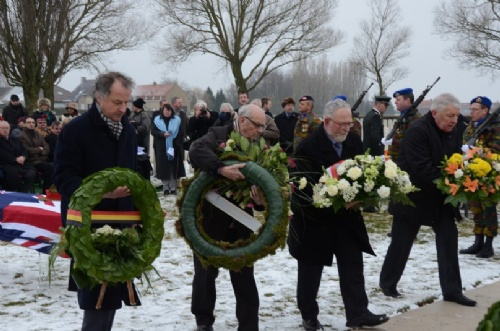
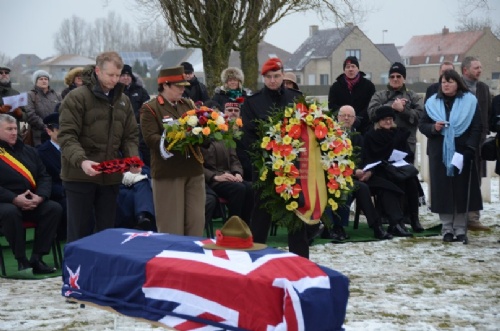
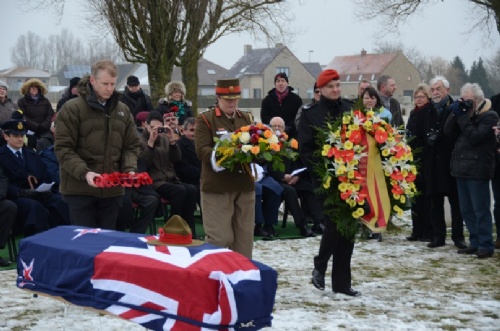
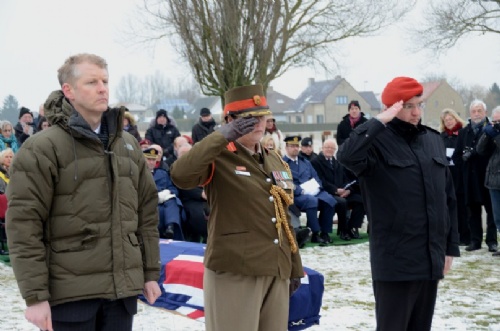
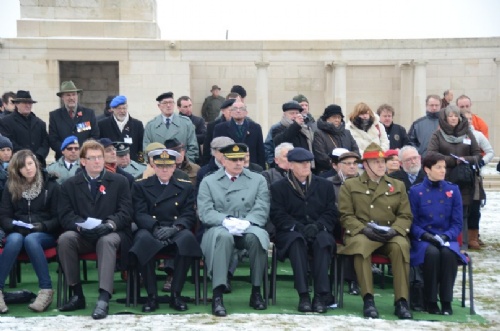
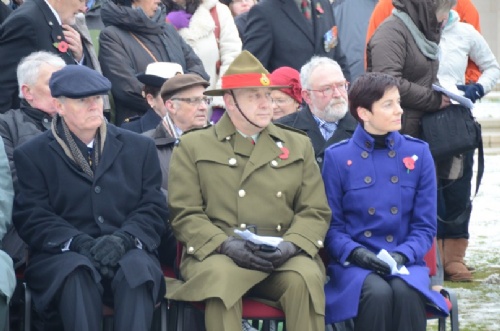
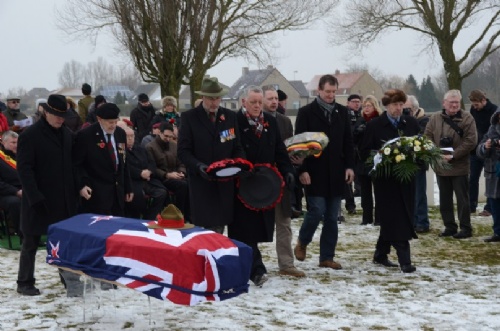
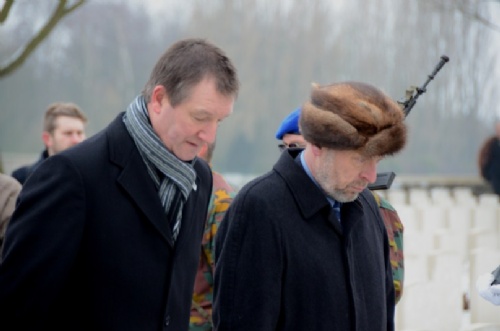
Towards the final resting place.
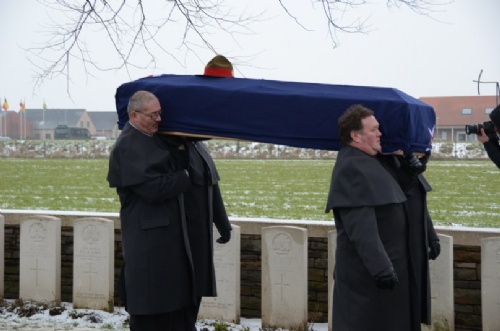
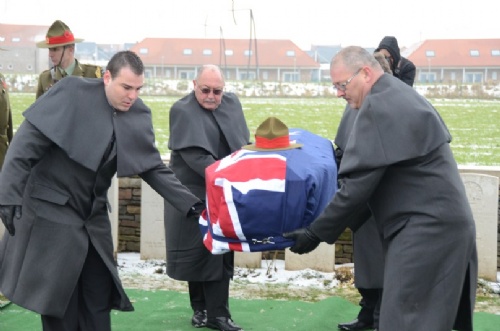
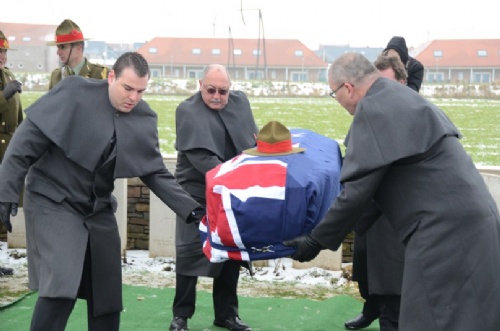
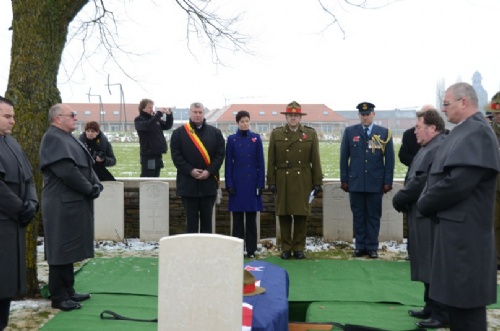
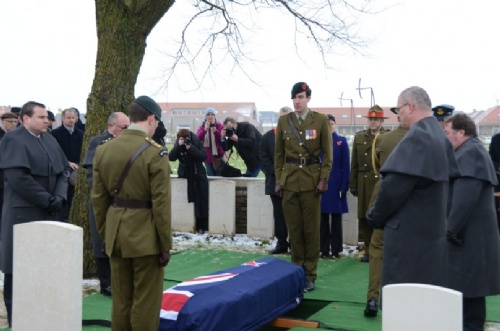
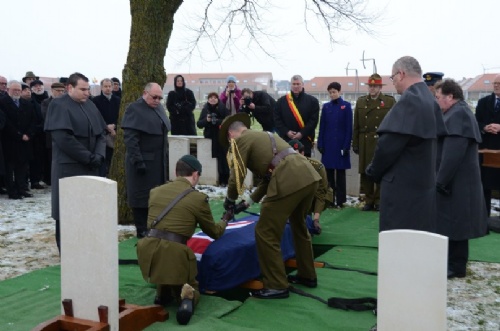
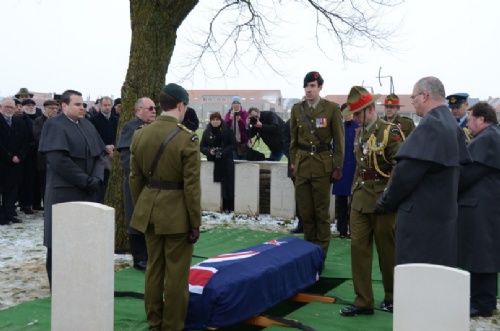
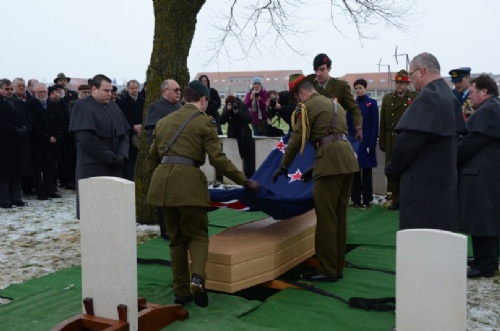
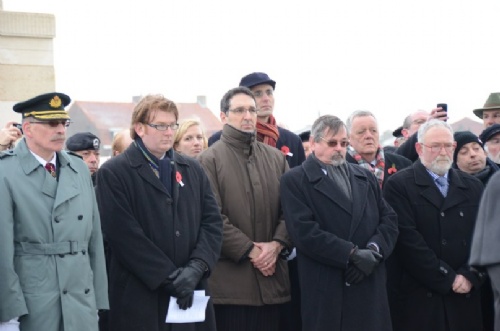
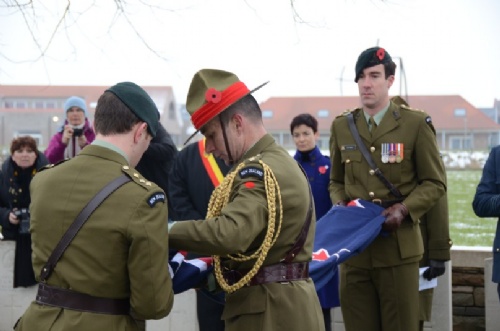
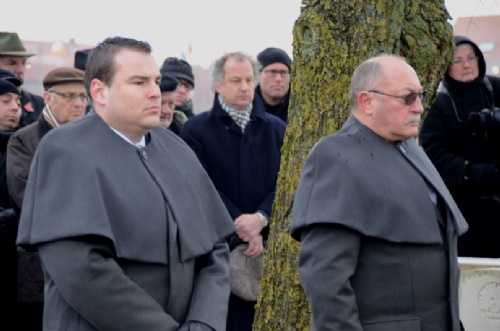
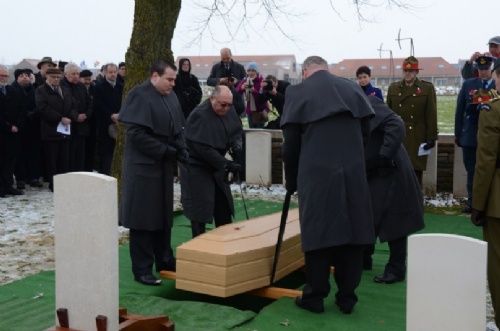
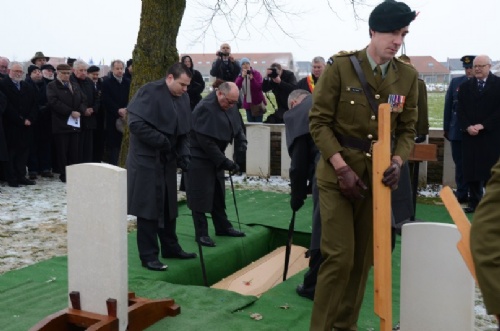
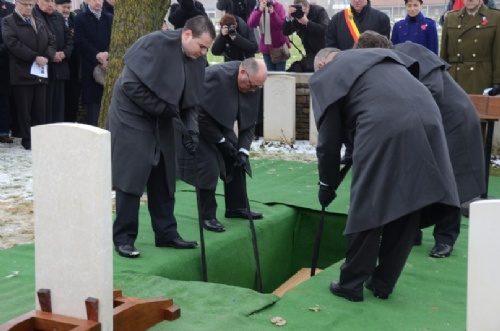
Carleen Ebbs
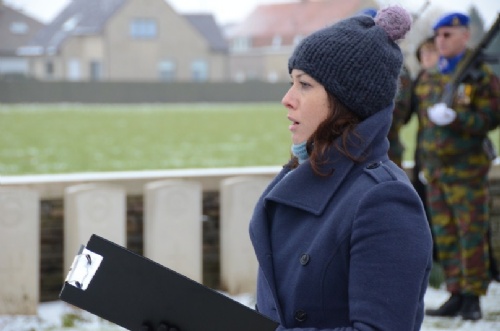
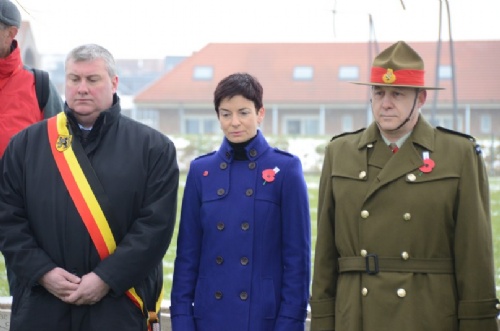
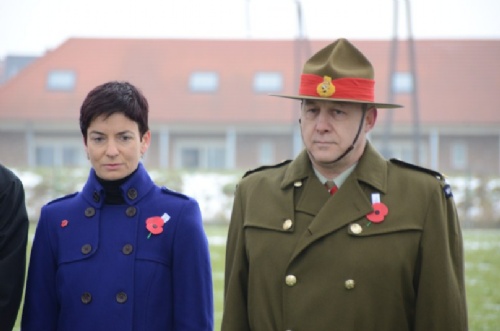
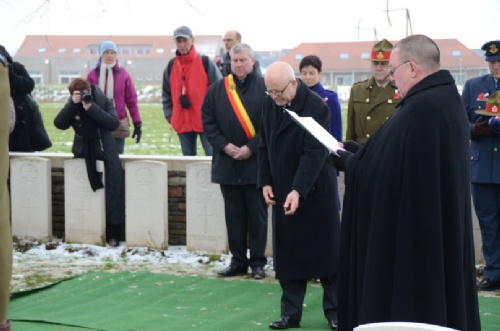
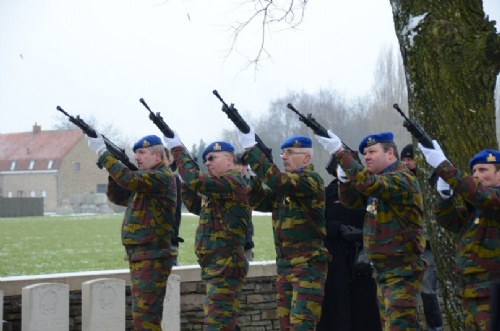
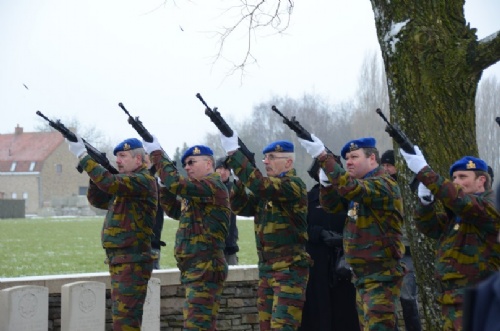
The Last Post by the buglers of the Last Post Association.
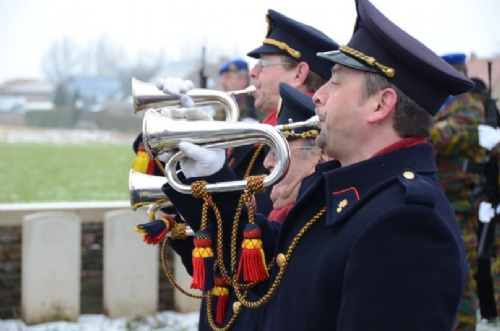
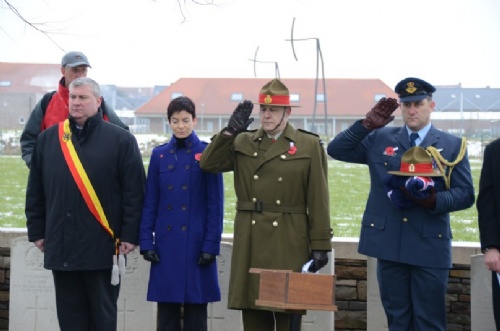
The Reveille
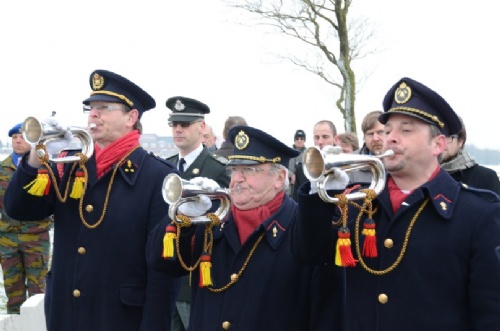
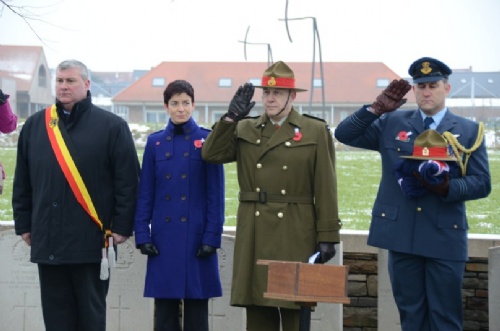
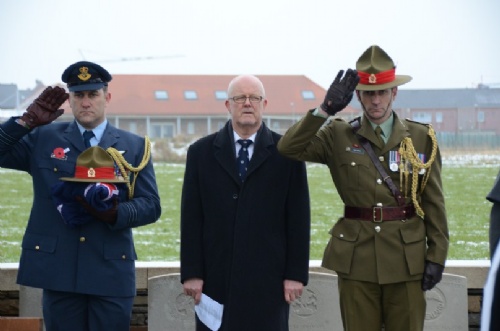
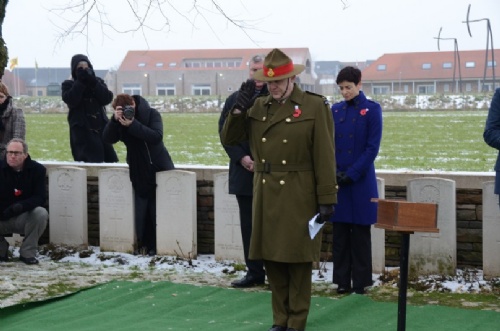
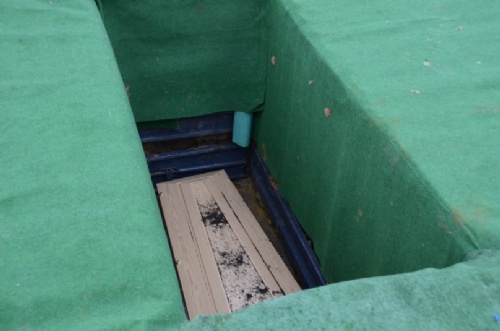
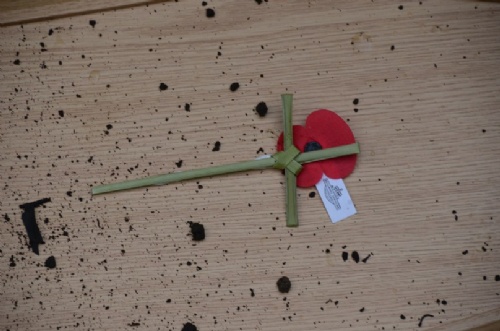
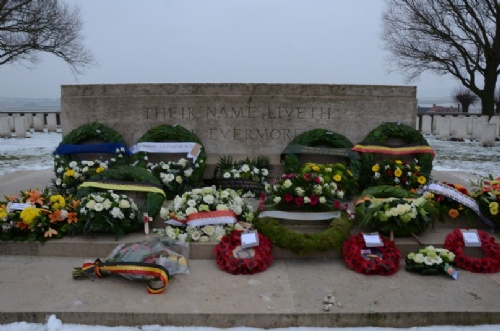
Reception at the Messines Peace Village.
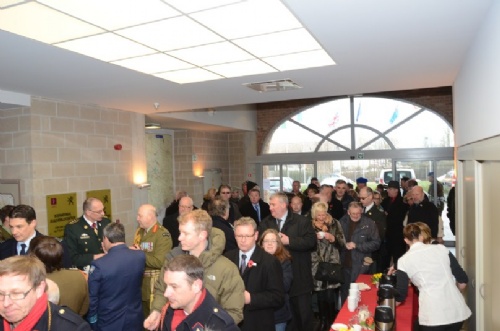
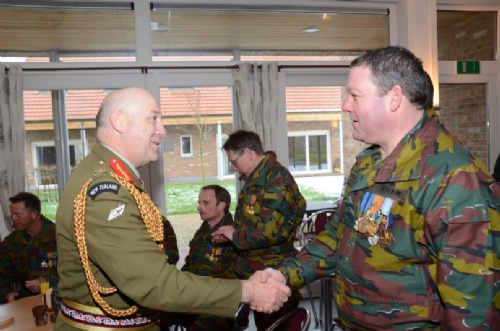
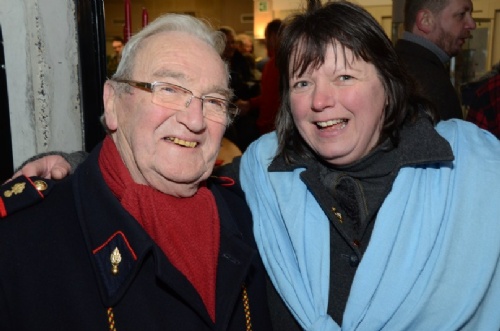
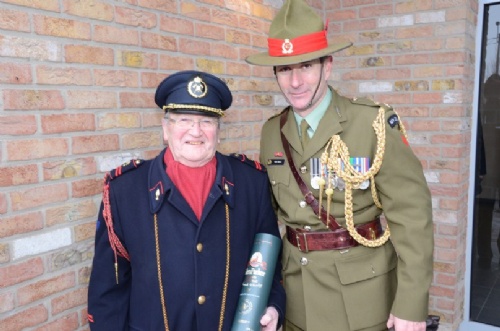
Address by New Zealand's Ambassador to Belgium, Paula Wilson.
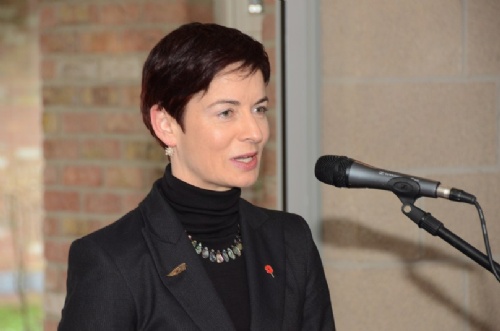
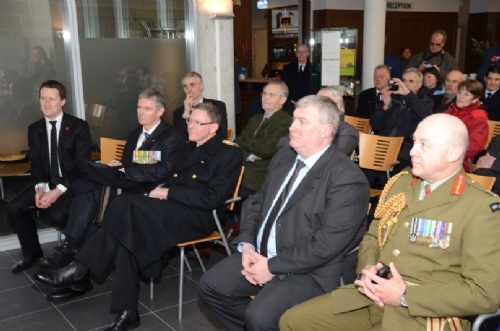
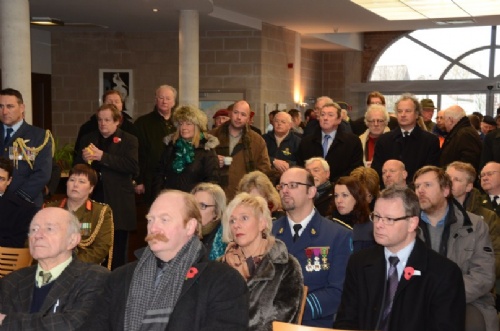
Address by a representative of Flemish minister Geert Bourgeois.
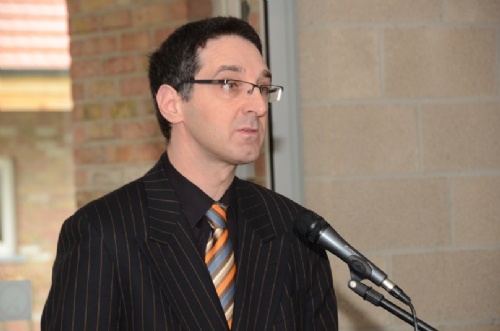
New Zealand’s Chief of Defence Force, Lt Gen R. R. (Rhys) Jones
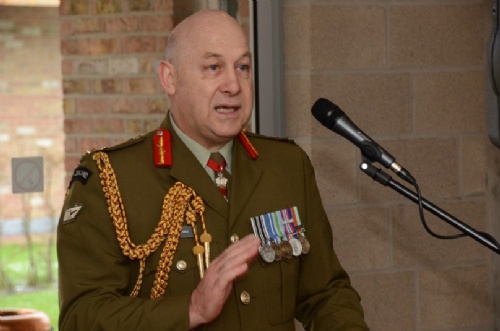
Exchange of gifts
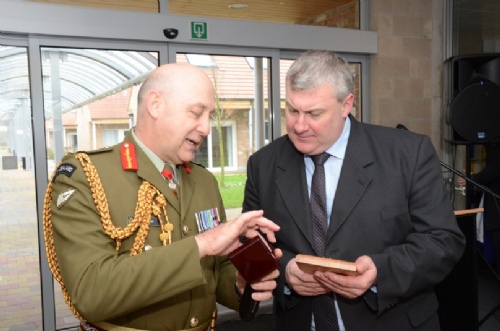
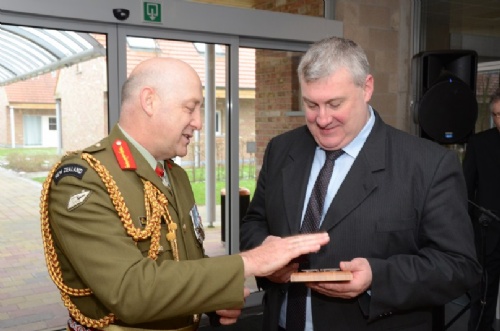
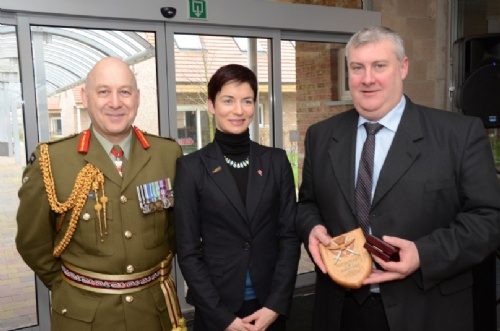
Pagina aangemaakt door Westhoek.be / WO1.be - Greatwar.be.
Klik hier als je zelf een fotopagina wenst aan te maken. Op deze pagina vind je alle info hoe je dit kunt doen.
You can always send your own page with picture(s). Click here to do so
|